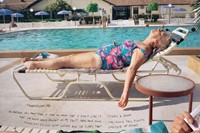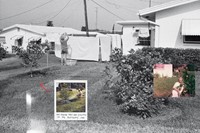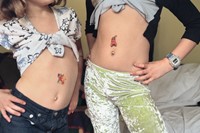Published by MACK, Jim Goldberg’s new photo book Coming and Going masterfully weaves photographs, letters, handwritten notes and ephemera into a gripping memoir
Coming of age in 1960s and 70s, Magnum Photos member Jim Goldberg readily identified as an outsider as America became increasingly polarised along lines of race, gender and class. He brought this same mindset to his photography practice, moving intuitively through the world as an observer to reimagine and redefine the possibilities of visual storytelling in a medium that had largely been excluded from the art world. Eschewing the longstanding tradition of photographer as “objective” non-participant, Goldberg understood the transformative power of collaborative relationships. He developed profound connections with the people he encountered, giving them voice through the work by inviting them to write on the photographs themselves, long before the practice became commonplace.
In the 80s Goldberg shot to fame with his groundbreaking book Rich and Poor, and followed it up a decade later with Raised by Wolves, the revolutionary portrait of homeless teens on the streets of Los Angeles and San Francisco. Recognising the limitations of documentary photography, he pushed past the narrow confines of fact to embrace the metaphysical possibilities that exist in the liminal space of art.
Now Goldberg delves inside his personal archive to create Coming and Going (MACK), a poignant visual autobiography that masterfully weaves photographs, letters, handwritten notes, snapshots and ephemera into a gripping memoir book ended by love, loss and death. Coming and Going spills open like a thousand-piece puzzle without a box, inviting us to make sense of the frenetic chaos of life without the conventional comforts of the three-arc narrative that defines most autobiographies. Instead, we get a masterful glimpse inside Goldberg’s mind, where milestones, triumphs and tragedies brush alongside the beatific and prosaic moments of existence.
“In this case specifically, I’m not only a witness but also a participant in the story,” he says. “I don’t consider myself a photojournalist, so I wouldn’t say my work is purely factual, but my story or anybody’s story is more like a memory. Photographs hold time – and memory and history are not fixed. It’s a moving thing; a search for something you can get close to or almost touch. Making the book is my version or approximation of what I saw and experienced.”
Blessed with the heart of a collector, Goldberg describes his need to preserve memories as a proclivity that has spanned more than half a century. He began the practice as a young boy, instinctively tucking images from photo albums in his head, as well as scenes from TV shows, hanging out with friends, and family gatherings. “I collected those memories and figured out a way to put them together so that they made sense,” he says. “Once I left home and found my voice, I started building a working methodology of what to collect, like family albums, hair, and toothbrushes that were metaphors for that period of my life.”
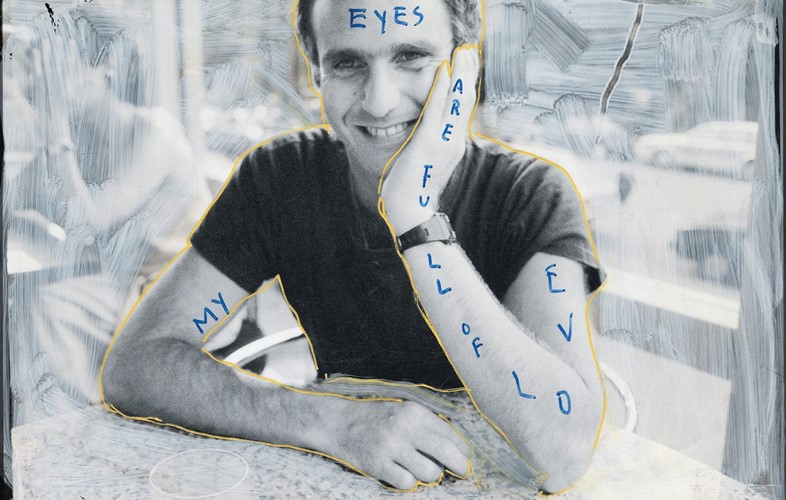
Loosely chronological, Coming and Going began to take shape after two critical events: the end of Goldberg’s first marriage and the death of his father. But like life itself, Goldberg takes the non-linear path, placing revelatory objects from his story later in the book, evoking the profound power of recovered memories that arise long after an event has passed. Every spread opens a floodgate of emotions, questions, and responses that are seemingly without context beyond the immediacy of the images, words, and juxtapositions. But deep within the seeming chaos, a deeper order begins to emerge as readers page through the book, creating connections to the literal and figurative clues carefully placed throughout.
Amid the cacophony of images and words, a relentless stillness grounds Goldberg’s work in something greater still: our search for what it all means, the whys and the hows. Embracing intimacy and vulnerability, he strips life of its pretensions and poses to confront both memory and mortality with a distinctive flair few possess. Guided by instinct, he began working on Coming and Going over 20 years ago, using collage, annotation, montage and reconstruction to craft complexly layered stories that are seemingly without beginning or end.
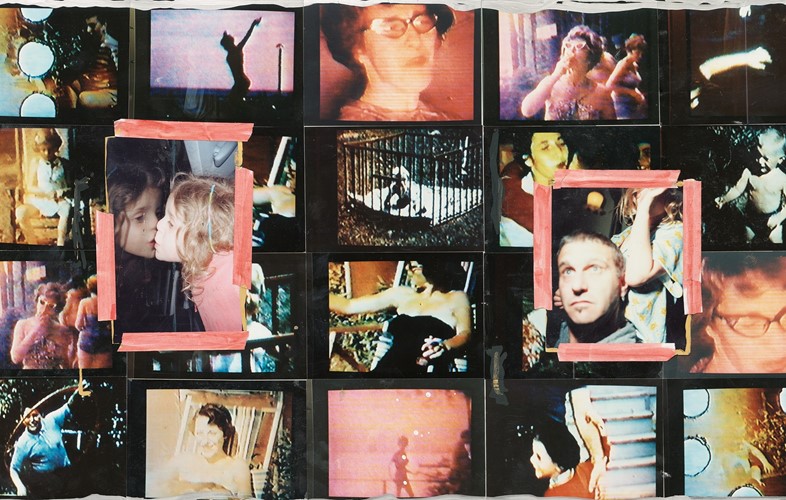
“The advantage of telling long-form stories is that you have the privilege of time. It shows you how the story unfolds and guides on how to tell it. Life is messy, and it’s not always in chronological order, so I tried to make sense of it and stitch it together like a film,” Goldberg says. “You gather new meanings when you look at something for a long time, so the evolution of the book was fluid. On the back cover, there’s a message in my handwriting overlaid on the collage of pictures that says: ‘Still Going.’”
Like his work, Goldberg speaks with the same passion and intensity. His thoughts flow freely, overlapping and revising to make just the right take, then dropping his voice to share something more intimate. “My family will rightfully make fun of the way I drive,” he says. “It’s not that I’m a bad driver but I’m looking around all the time. I see that bird there, a guy with a plow in the middle of the field, a dead possum in front of me, and what’s going on in the back seat. That’s just the way I am, and I think that’s how I approach my work: seeing high, low and in-between then pulling it together.”
Coming and Going by Jim Goldberg is published by MACK, and is out now.


